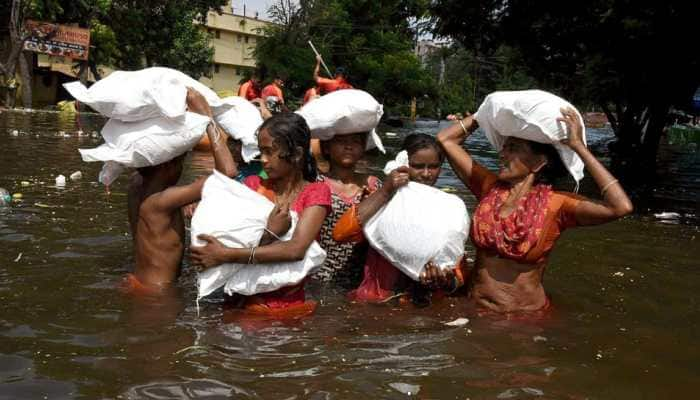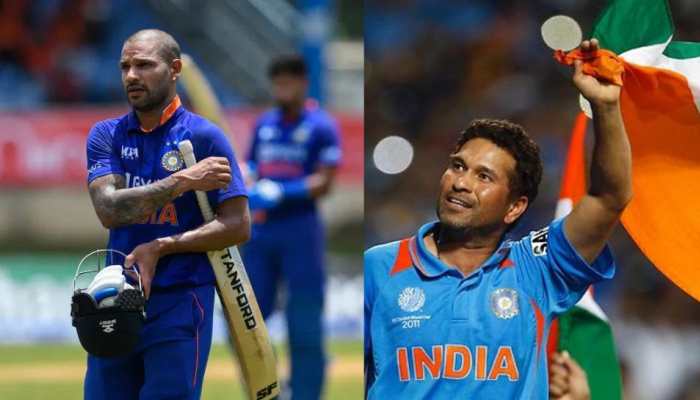Why food delivery boys in India can earn more than PhDs
It is a cultural thing with Indians, and it takes a while for culture to change.
Trending Photos
)
Two seemingly unconnected bits of news made me sit up this week -- and between them they show contrasting views of India, its society, its state of education and its economy.
As many as 81,700 graduates have applied for the post of a messenger (commonly known as peons) in Uttar Pradesh police, and among them, hold your breath, are 28,000 post-graduates and even 3,700 PhD holders. The qualification officially required for the job is just primary school education.
The common view is that this reflects the state of unemployment in the country. But I would beg to differ. Why would 81,700 graduates queue up for 62 posts that involve a monthly salary of only Rs 20,000? I think the reasons run deeper. Based on a general observation for decades of how things work -- or don't -- in India, I think it is a reflection of the poor state of education and outlook towards jobs in a substantial part of Indian culture.
My take: In India, people want a job but no work. They want a permanent salary in a secure employment.
It is common in India to see matrimonial ads that speak of "permanent jobs" because that secures a lifelong arrangement without fear of being sacked. If it is a government job, that includes a pension. And it is common knowledge that there is in government jobs a scope for oopar ki aamdani (extra income), which is a euphemism for bribes or goodies. Loans are easier when you have a government job. Of course, marriage proposals flow in for men, and with them comes the prospect of a fat dowry.
It is commonsensical to ask: If there are graduates and post-graduates looking for a job, why can't they apply for call centre positions? Turns out in terms of pay there is not much difference, while working the phones as cold-callers or cranky customers may mean a lot more work than being a police peon.
Salary tracking site Payscale.com says a call centre customer service executive in India earns an average salary of around Rs 200,000 per year. There are some bonus and other payments that yield about Rs 40,000 more. Guess what? The final average monthly figure of about Rs 20,000 is the same as what a messenger in UP Police would get. You can say with certainty from posters and ads in India's leading cities that call centre jobs are aplenty. You can also guess why a peon's job in Lucknow may be preferred to that of a call-centre worker in Noida.
According to the substantially implemented recommendations of the 7th Pay Commission, a central government peon gets a starting salary of Rs 21,000 a month.
It seems a peon's job may make more sense for someone whose educational qualifications are mostly on paper and/or someone who looks for a permanent salary with less work, than someone who has to slog to earn commissions -- such as a call centre worker.
Now, there is another industry that is booming in India - e-commerce. Food delivery startup Foodpanda said last week that it is planning to hire as many as 60,000 food delivery assistants over a mere two months. That is nearly 1,000 times the number of jobs advertised by UP police, which has decided to postpone its recruitment because of the overload of overqualified applicants!
Foodpanda promises to pay around Rs 25,000 a month to the delivery riders -- more than the average call centre worker who can boast of air-conditioned offices and white collars but not necessarily higher pay. In some areas like Hyderabad recruitment data suggests delivery boys/girls may get as much as Rs 40,000 a month.
The salary may be well deserved. My guess is that it takes a lot more smartness to be a Foodpanda delivery rider than a messenger in UP Police. You need to work longer, negotiate traffic jams, deal with difficult customers, meet deadlines and achieve targets. The peon in UP Police may well get a 'hafta' that may surpass a framed "Employee of the Month' certificate that the Foodpanda rider can boast of from his HR department. But how does pride compare with a hafta or a dowry?
Foodpanda and other e-commerce companies are trying to change the work culture in India. For now, both the sarkari culture and the digital age culture co-exist.
I am being a bit cynical here, but the UP and Foodpanda statistics, if true, only confirms the belief that in India, educational qualifications often involve learning by rote, clearing dubious exams in vague hinterland universities, not being acquainted with sufficient employable skills and above all, not being serious about having a real career.
It would take a while for culture to change.
(Madhavan Narayanan is a senior journalist who has covered politics, diplomacy, business, technology and other subjects in a long career that has spanned organisations including Reuters, Business Standard and Hindustan Times. He is currently an independent columnist, editor and commentator. He is listed among the top 200 Indian influencers on Twitter. He tweets as @madversity)
(Disclaimer: The opinions expressed above are the personal views of the author and do not reflect the views of ZMCL.)
Stay informed on all the latest news, real-time breaking news updates, and follow all the important headlines in india news and world News on Zee News.
Live Tv







)
)
)
)
)
)
)
)
)
)
